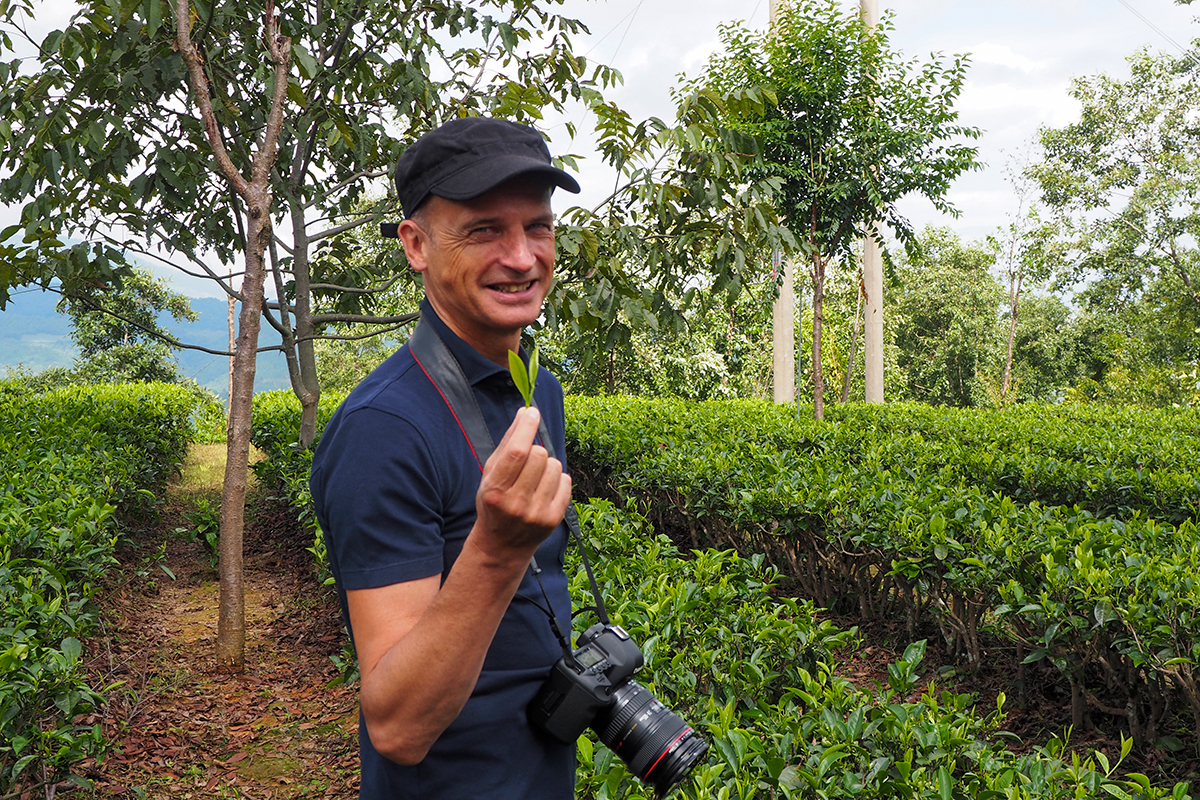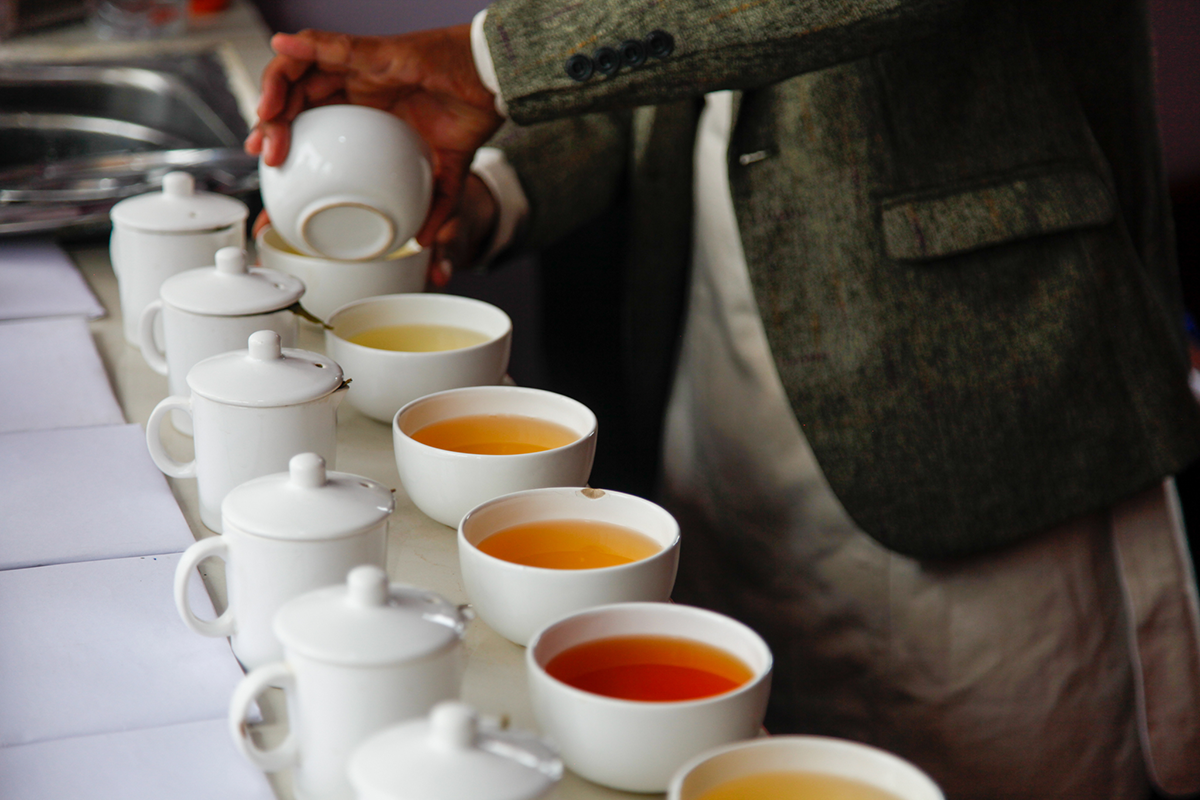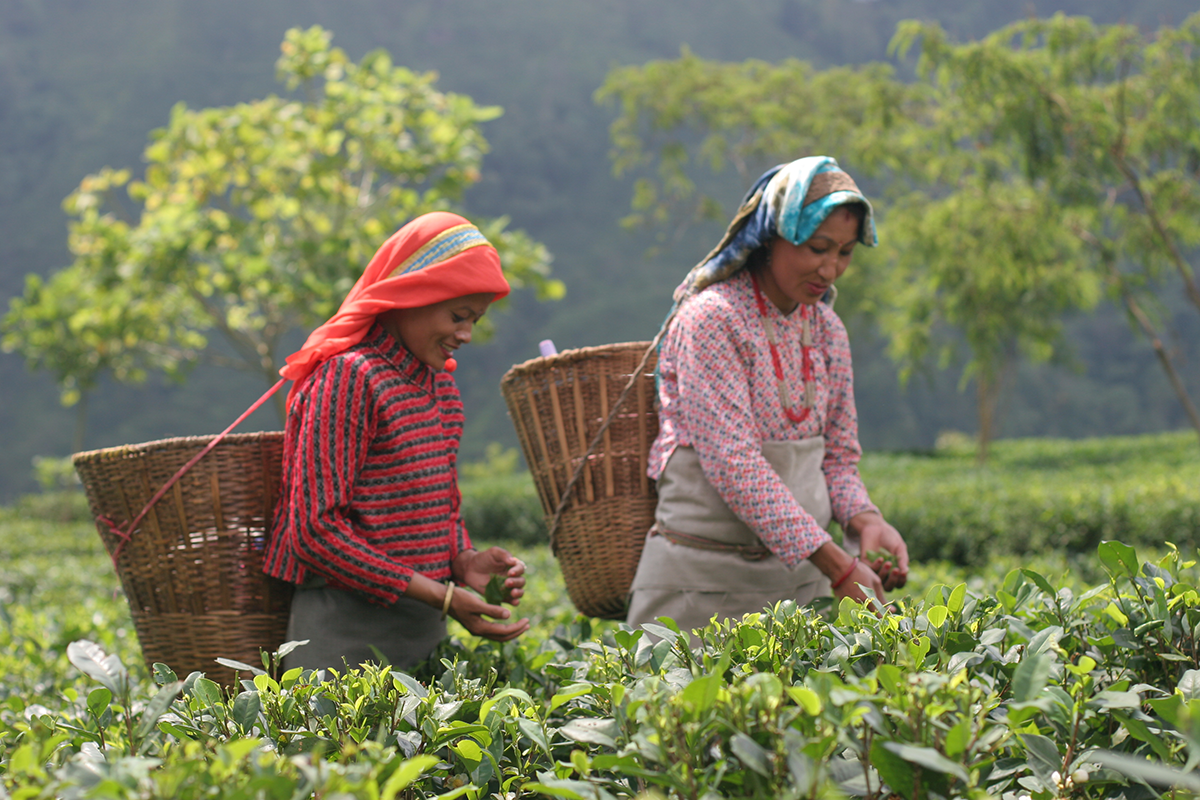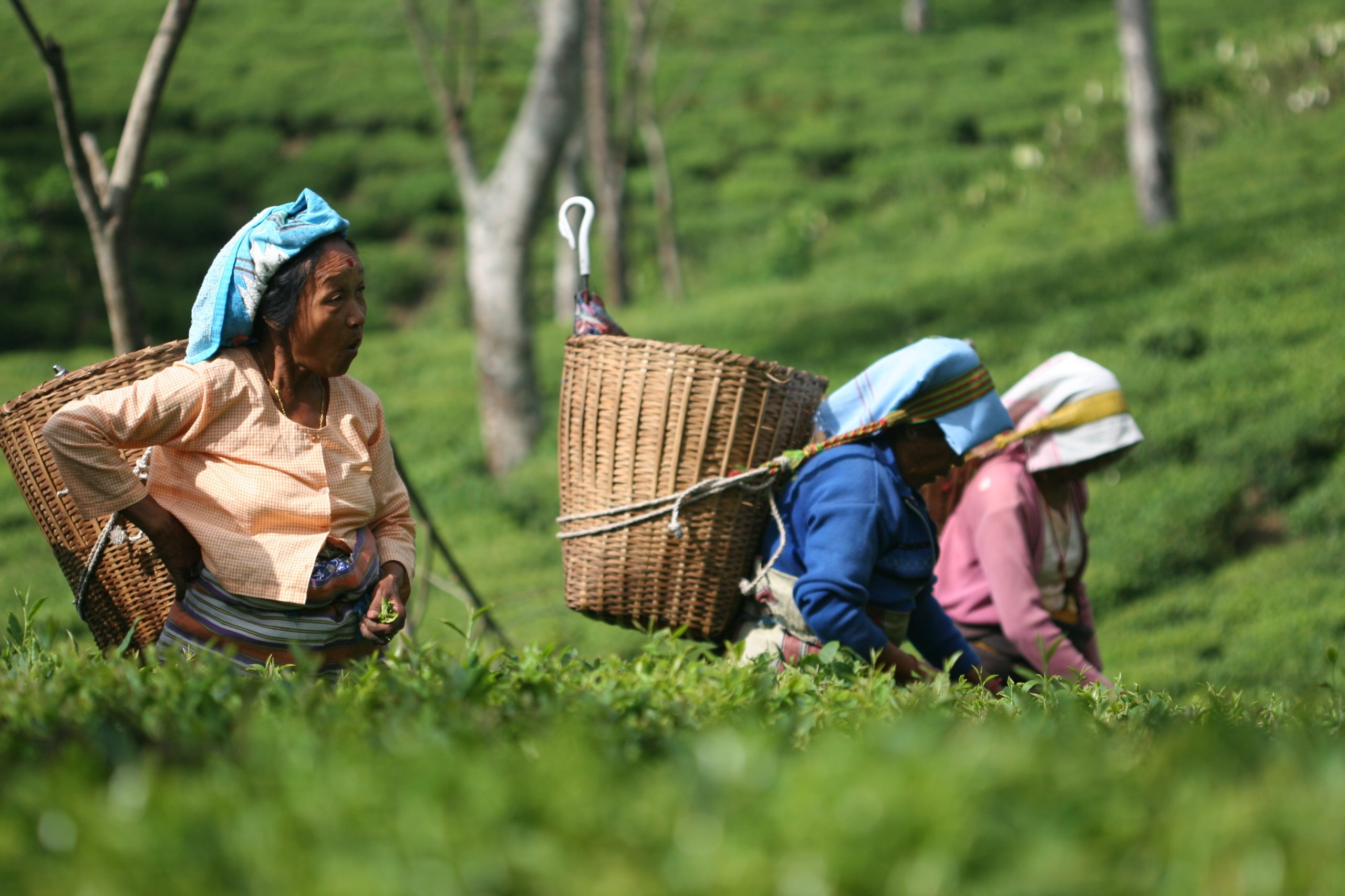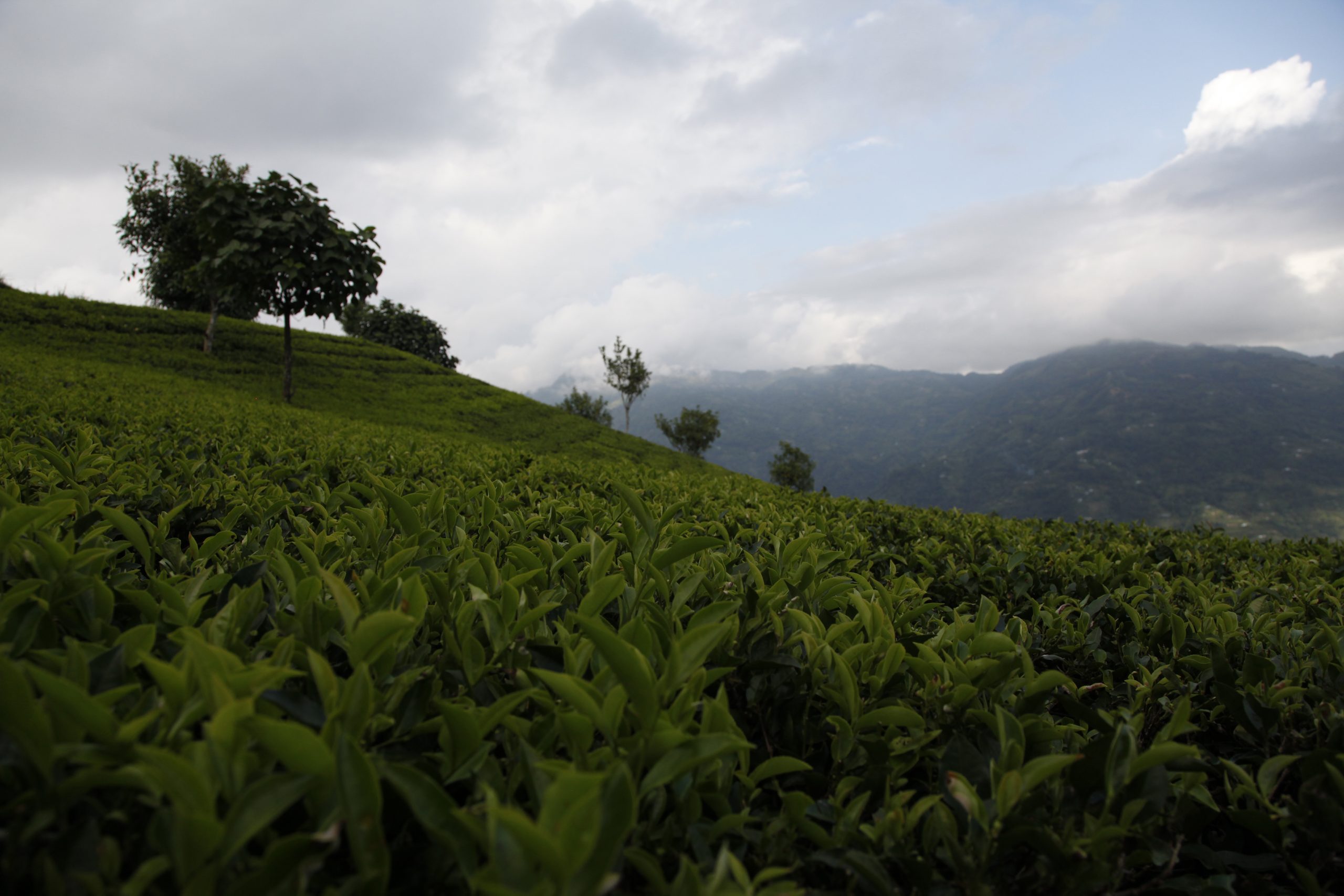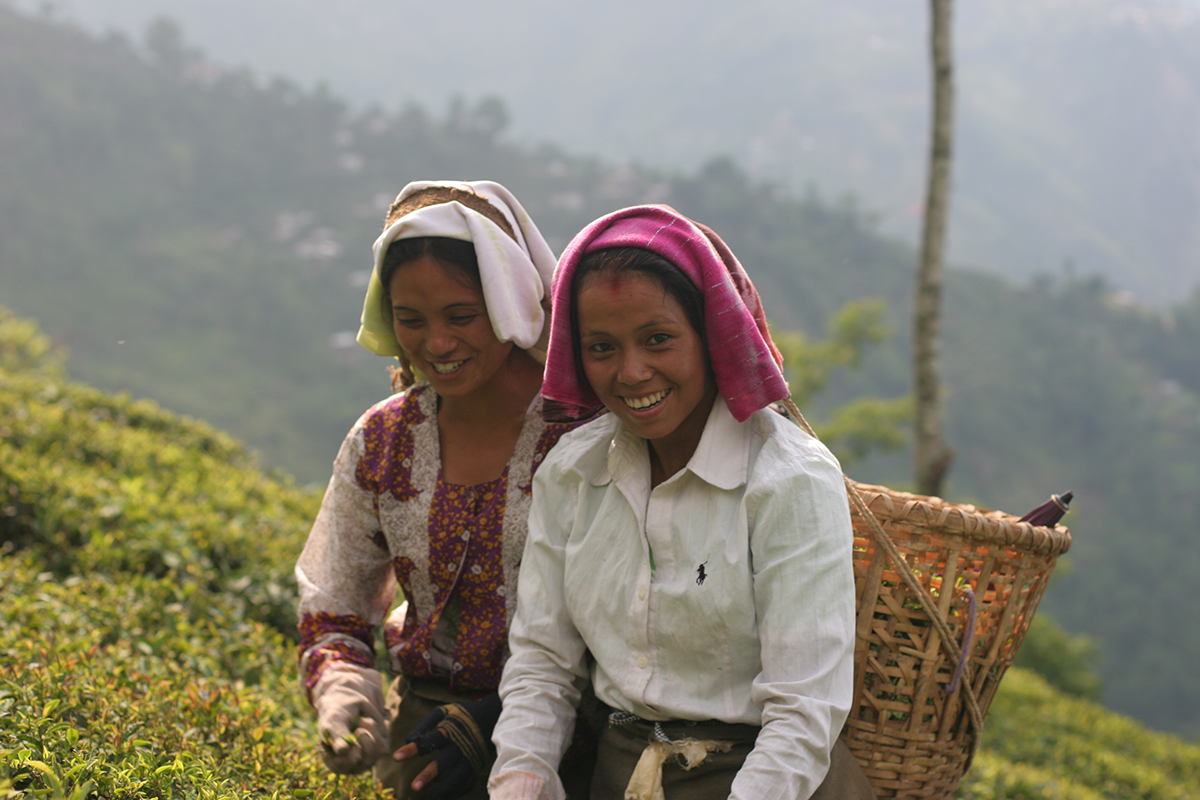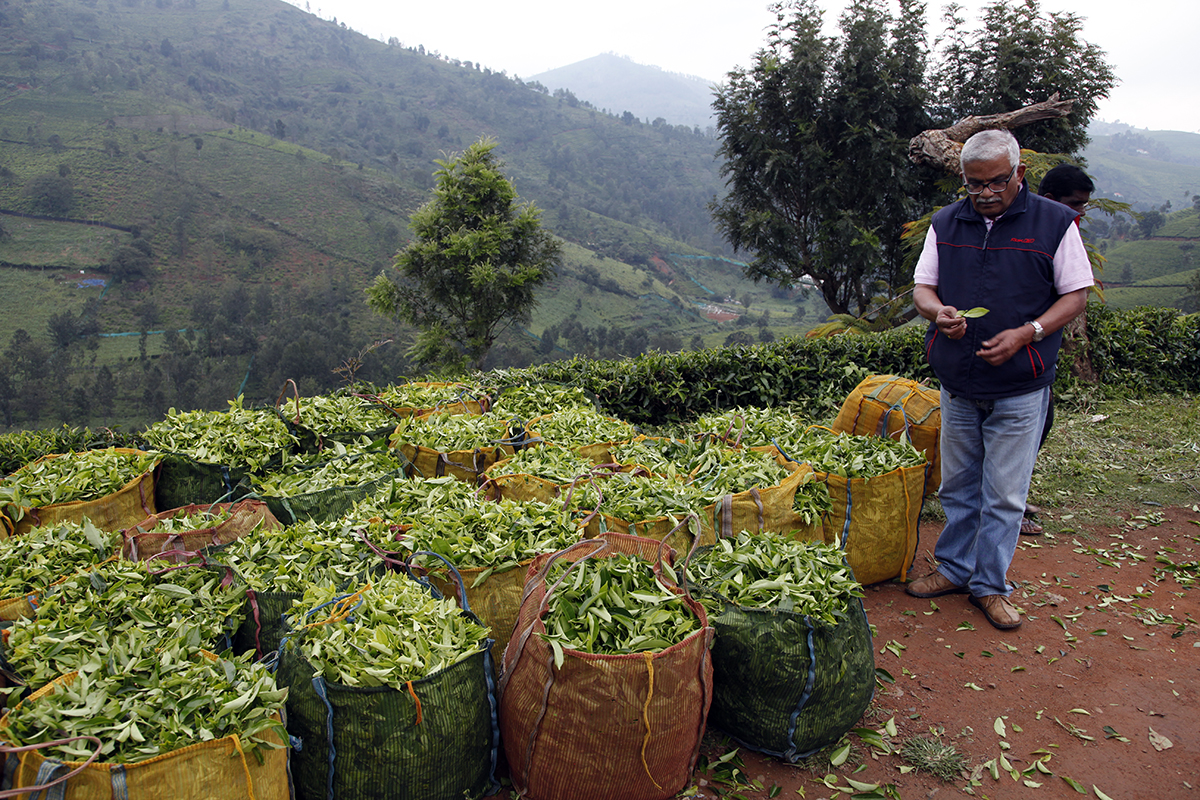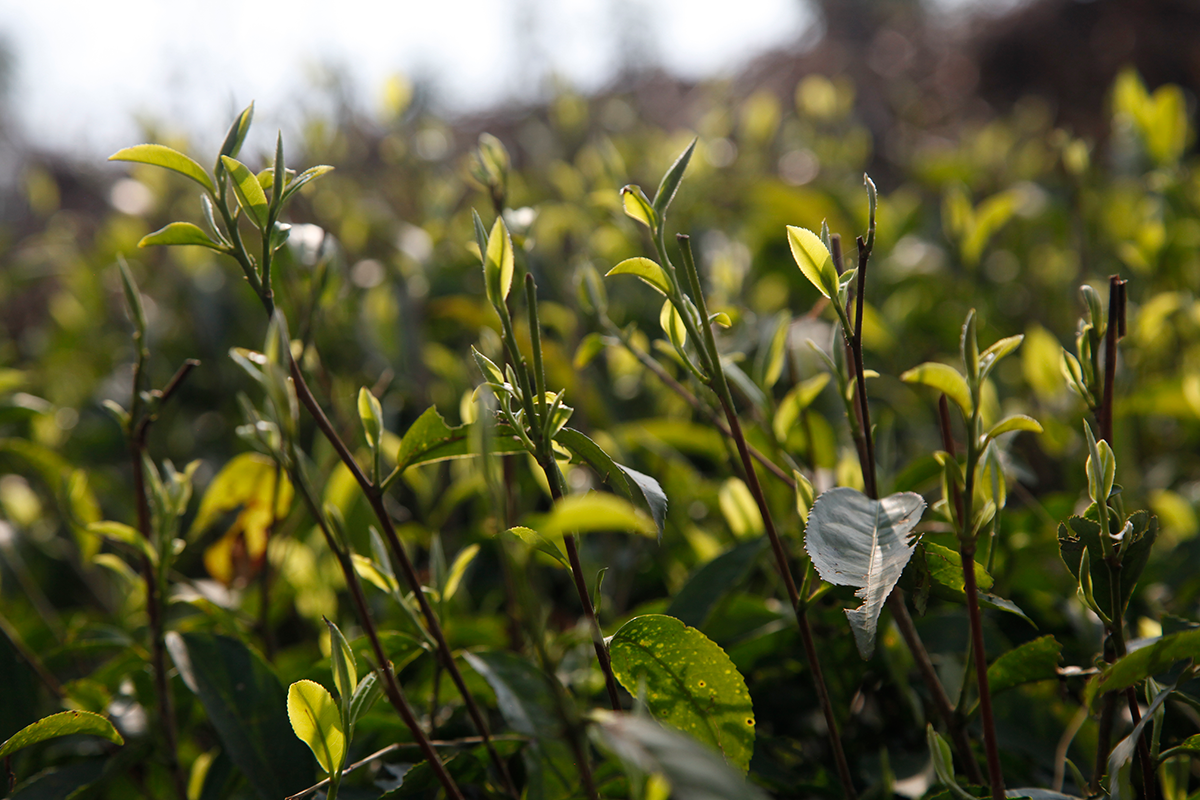In early spring, the first young shoots appear on the tea bushes. Here in Darjeeling, they arrive after a long winter when the camellia plant goes into dormancy. This lasts for about four months, from mid-November to early March, depending on the weather conditions.
This year, the Himalayan foothills, where the British decided to grow tea less than two centuries ago, have experienced a drought. Six months with little or no rain due to climate change, linked by some to global warming, by others to deforestation. The consequences are reflected in the figures and by mid-March, production was expected to be half of last year’s. However, there are no concerns when it comes to quality. Slow growth results in higher quality and more intense aromas and flavours.

